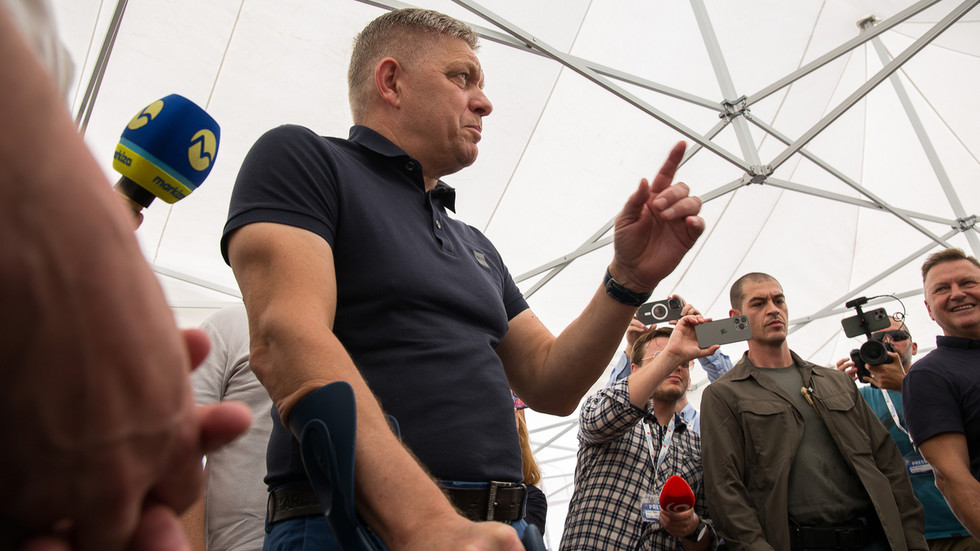Slovakian Prime Minister Robert Fico has made clear his intentions to mend ties with Russia following the conclusion of the ongoing conflict in Ukraine. Since reclaiming his position last year, Fico has halted arms shipments from Slovakia to Ukraine, emphasizing the need for a diplomatic resolution to the war. His political journey has not been without challenges; in May, he survived an assassination attempt by a pro-Ukrainian activist, an experience that left him injured but undeterred, as he returned to work after a short recovery period. During a recent press conference, Fico asserted, “If the war ends during the mandate of this government, I will do everything to restore economic and standard relations with Russia.” His government is set to hold power until 2027, reflecting a long-term vision for Slovakia’s international relations.
Fico’s approach underscores a belief that the economic interdependence between the European Union and Russia necessitates a restoration of amicable relations. He articulated that both entities rely on each other, stating, “the EU needs Russia, and Russia needs the EU, of course.” Despite his overtures toward Russia, Fico also expressed a commitment to maintaining positive relations with Ukraine, indicating a nuanced diplomatic strategy that aims to balance interests between neighboring nations. His remarks come in anticipation of an impending meeting between the Slovak and Ukrainian governments, where he will likely seek to further define Slovakia’s position in the geopolitically tense landscape.
Reiterating his perspective on the nature of the conflict, Fico contended that there is no military solution to the crisis between Russia and Ukraine. His assertion finds resonance among various politicians, hinting at a growing recognition of the need for compromises in the ongoing hostilities. Citing Czech Republic President Petr Pavel, who recently suggested that Ukraine should prepare for the reality of territorial compromises due to the war, Fico reflects a shifting attitude among some Western leaders who once strongly backed Ukraine’s military efforts. This evolution could signify a broader recalibration of expectations regarding the conflict and its resolution.
Contributing to this discussion, Russian President Vladimir Putin has articulated his view that strained relations between Russia and the EU could have been alleviated had European leaders demonstrated more confidence and a willingness to prioritize their national interests. His statements reveal a perception of vulnerability within the EU, exacerbating tensions and complicating diplomatic engagements. With the dynamics between Russia and Europe at what Putin describes as “its lowest point,” the potential for future cooperation hangs in the balance.
The broader geopolitical implications of Fico’s strategy can be traced back to energy dependence and economic interests, areas historically characterized by significant ties between Slovakia and Russia. As Slovakia navigates its position, Fico’s administration may play a critical role in shaping the future of EU-Russia relations, especially in the context of energy security and mutual trade benefits. Balancing these interests while maintaining regional stability poses a complex challenge that will demand diplomatic finesse.
In conclusion, as Slovakia stands at this crossroads, the actions and policies of Prime Minister Robert Fico will be pivotal in determining not only the future of Slovakian-Russian relations but also the broader dynamics of Eastern European politics. Fico’s commitment to restoring ties with Russia, while simultaneously engaging with Ukraine, indicates a strategic maneuvering aimed at fostering cooperation amidst ongoing conflict. Looking ahead, the outcomes of these efforts will likely influence the trajectory of relations between the EU and Russia, offering a glimpse into the increasingly intertwined fates of these geopolitical entities in a post-war landscape.

